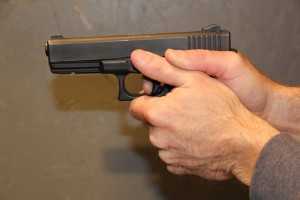 Gun trusts are commonly created for weapons under the federal law, known as the National Firearms Act of 1934. These also cover firearms that are now regulated under the law’s revised version, which is the Title II of the Gun Control Act of 1968. 2ATrusts.com says this trust can acquire, manage, and share NFA weapons.
Gun trusts are commonly created for weapons under the federal law, known as the National Firearms Act of 1934. These also cover firearms that are now regulated under the law’s revised version, which is the Title II of the Gun Control Act of 1968. 2ATrusts.com says this trust can acquire, manage, and share NFA weapons.
1. Gun trusts are much like estate planning tools, but more flexible.
You can set up a gun trust for weapons, such as short-barreled rifles and shotguns, sawed-off shotguns, machine guns, grenades, and silencers, among others.
2. With a well-developed trust, usual transfer procedures are eliminated.
As long as your gun trust has been developed by an expert, you can expect the following benefits:
- Assign more than one person as a trustee;
- Allow trustees to use the weapons and armament in the trust without the need to get individual permission from the BATFE or the Chief Law Enforcement Officer (CLEO);
- Transfer procedures usually associated with other types of trusts are eliminated, as long as the current trustee has indicated other trustees as well as their respective rights;
- Avoid having to deal with probate of the items held by the trust;
- Make it easier for your estate’s executor or have no need to hire one at all; and
- Faster BATFE processing.
3. Contrary to popular belief, gun trusts are not extremely expensive.
A myth you often hear is that gun trusts cost a lot more than their real value. On the contrary, you will find highly experienced providers of comprehensive gun trusts who charge reasonable fees.
With a gun trust, you have more freedom and ensure that your loved ones will have no issues acquiring your weapons after your death.




